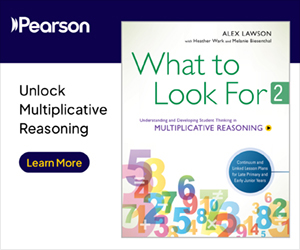Audrey Farrier, a longtime instructor with UCalgary Continuing Education, draws on a background in clinical psychology and organizational consulting to help students manage one of the workplace's most common challenges: conflict.
As a consultant, she worked with businesses on stress management, teamwork, and conflict, and discovered a growing demand for training.
"I found that what companies were asking me to do was to teach and educate their employees about a better way to work together," she says.
She joined Continuing Education in 2007 and now teaches a variety of business courses, including Conflict Management, a practical course designed to help professionals navigate interpersonal and team dynamics.
"Students respond very well to any kind of support or understanding you can give them," says Farrier. "That's one of their number one concerns as they move through their career. It's not necessarily knowing more information, it's really about practice and application."
Practical tools for a complex work world
Conflict management is more than a communication skill. It has broad implications for employee well-being, productivity and organizational success.
"Students want to understand how to work in more complex organizations and with larger volumes of people, not just locally, but across the world," she explains. "All of that brings challenges as to how we work together."
Continuing Education has launched a new Workplace Conflict Management Certificate that teaches essential leadership skills for today's evolving workplaces.
Farrier notes that the concept of who needs to engage in conflict management is changing. "It is increasingly seen as a vital skill for everyone, not just HR professionals or leaders," she says.
Organizations are beginning to understand that empowering employees to lean into difficult conversations respectfully and purposefully fosters a healthy workplace. More importantly, these behaviours allow people to collectively navigate challenges, offering a grounded framework for workplace resilience.
Farrier's course focuses on de-escalation techniques, self-awareness, and actionable models that can be applied immediately on the job. The certificate also explores leadership strategies, coaching approaches and methods for fostering positive collaboration.
Adapting to the modern workplace
Managing conflict is becoming central to navigating the growing complexity of modern work. Workplaces are and will continue to be more diverse, fast-paced and reliant on cross-functional collaboration. These environments will require not only technical skills, but emotional intelligence and conflict fluency across all employment levels.
Encouraging a culture where everyone participates in managing conflict and maintaining psychological safety will be critical to sustaining engagement, innovation and equity in the workplace.
Self-advancement through continuous learning
Farrier believes that self-directed learning is essential and encourages anyone considering continuing education to think beyond career advancement and instead focus on staying curious, resilient and relevant.
"We're asking our employees to be self-defined," Audrey explains. "That means you need to come to the workplace with credentials, micro-credentials, something that defines your skill set. You can't rely on what you learned 10 years ago to carry you through the next 40."
Courses included in the Workplace Conflict Management Certificate run year-long and are offered online and in-person. To earn the certificate, participants must complete six 20-hour courses. Learn more













